Thursday, May 19, 2022 / 4.30 PM / by AbdulQudus Isiaka, Proshare Research / Header Image Credit: EcoGraphics
Following the release of the Consumer Price Index (CPI) data by the National Bureau of Statistics (NBS) for April 2022, local analysts have noted that major steps must be taken by the federal government to tackle price spikes that have squashed real consumer purchasing power in Q2 2022.
According to the NBS report, inflation rose by 90 basis points (bp) in April rising to +16.82% from +15.92% in March 2022. The rise in CPI was expected given the rise in white oil products including Diesel (AGO, Premium Motor Spirit (PMS), and other fuels.
Recently, airline operators threatened to shut down operations due to the high cost of aviation fuel (Jet A1) which had climbed over N600 per litre. Likewise, telecommunication sector operators had said they would introduce a 40% tariff rise in call and short message (SMS) charges. They blamed the need for a hike on the continually rising cost of diesel and soaring operating costs.
The Rising Food Monster
NBS Inflation numbers showed that the food sub-index rose by (18.37%) or 117 bp faster than the the17.20% recorded in March. As for the core inflation index, it rose by 14.16% in April, or 26 bp faster than it did in March 2022.
The Bureau’s figures suggest that headline inflation rose to +16.82% in April 2022, the highest since August 2021, when the CPI grew by +17.01%. The rise has been chalked down to a spike in domestic food prices (+18.67%).
Meanwhile, the cost of Housing, Water, Electricity, Gas, and other fuels also picked up the pace. According to the Bureau’s numbers inflation on such items rose by 76basis points from +12.32% in March to +13.08% in April. Another factor that supported the higher-than-expected Inflation rate was the price of imported food which rose by +17.66% (see table 1 below)
Table 1 Tracking April 2022 Inflation Numbers
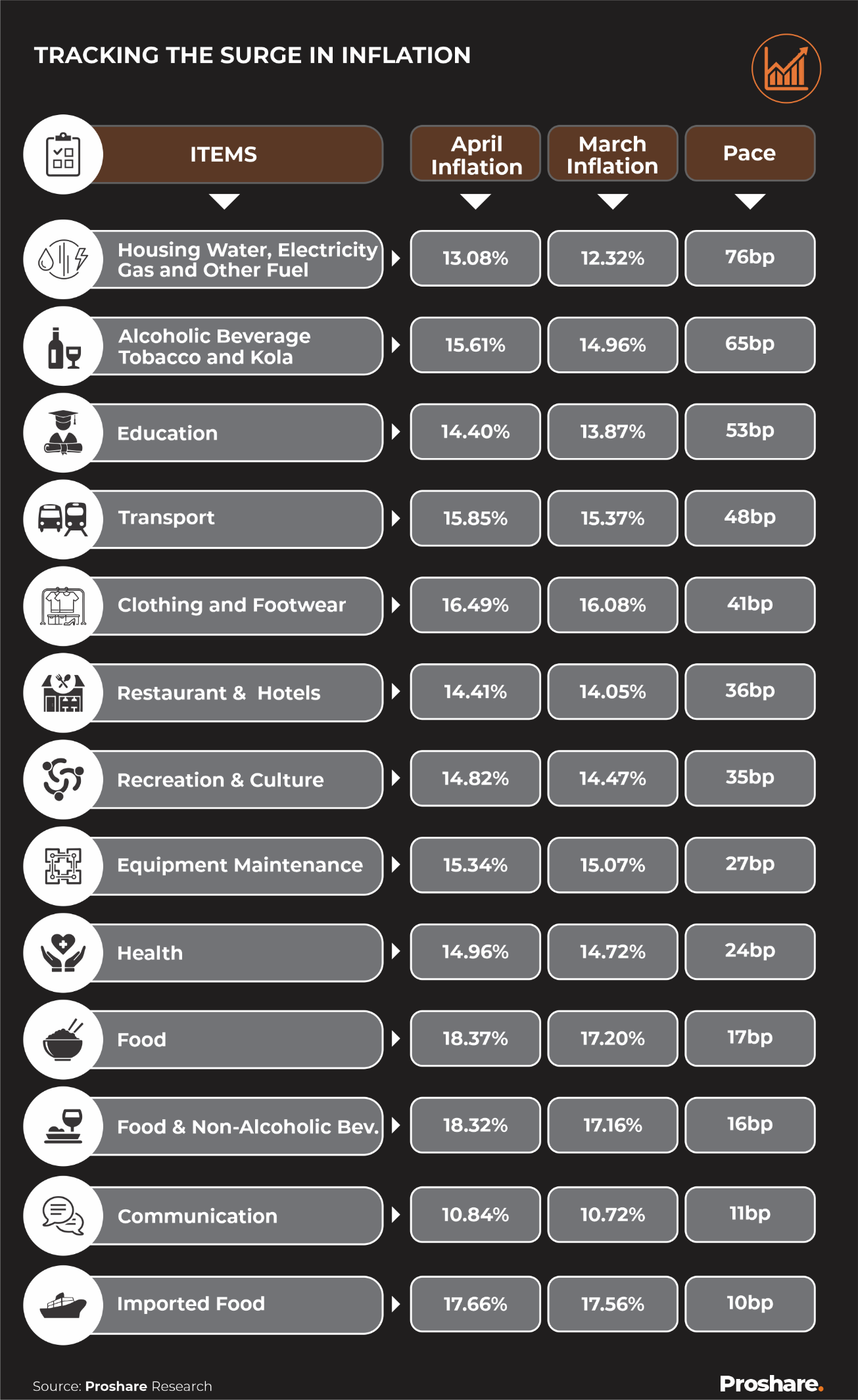
Monthly, inflation rose by +1.8%, the swiftest monthly Index rise since December 2021. The food index also rose month-on-month (M-o-M) by +2% the highest since December last year.
Headline Inflation:
Headline inflation in April came in at +16.82% suggesting that the CPI increased by +16.82% in April 2022 compared to April 2021. The figure was higher than the +15.92% in February 2021 (see Chart 1 below).
Chart 1: Nigeria's Headline Inflation Rate (Y-O-Y) April 2021 - April 2022 (%)
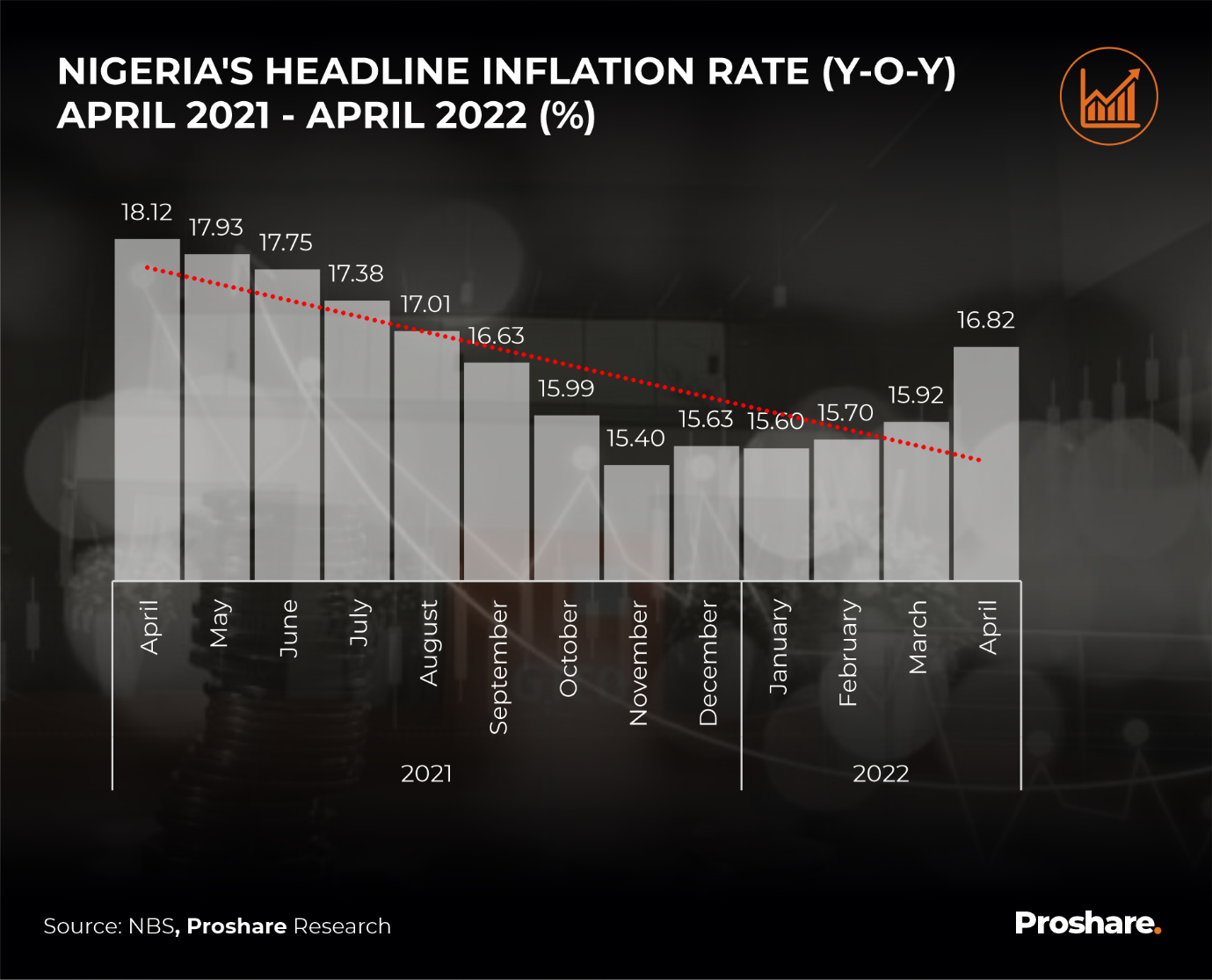
M-o-M, the general price level in April rose by +1.76%, the second highest in 12 months. The meaning is that prices in April 2022 were on average +1.76% higher than they were in February. M-o-M inflation has over time mirrored the headline inflation rate (see Chart 2 below).
Chart 2: Nigeria's Headline Inflation Rate(M-o-M) April 2021 – April 2022 (%)
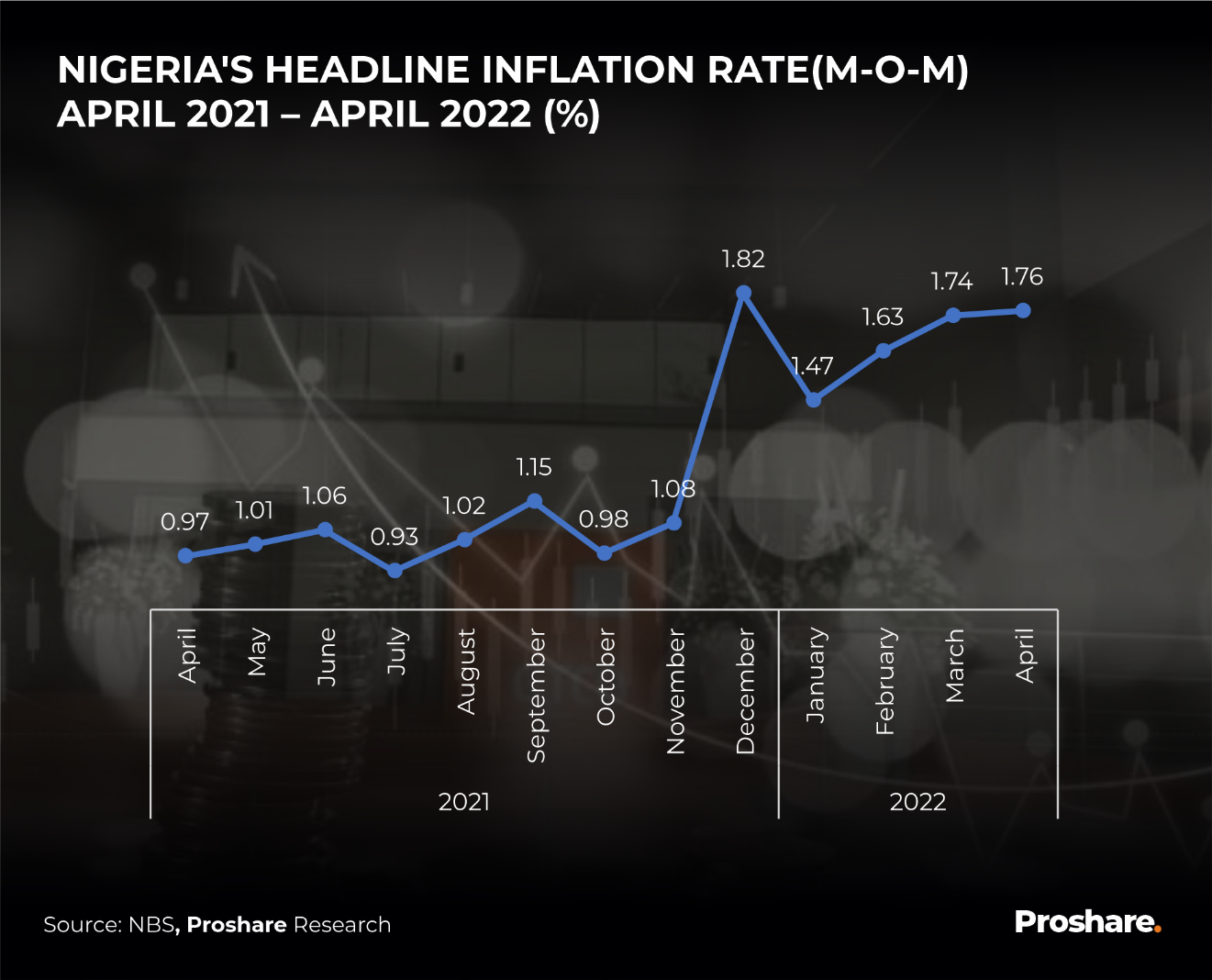
Food Inflation: Driving into Price Hikes
The food sub-index saw a Y-o-Y increase of +18.37%, suggesting that the price paid by Nigerians for food in April was on average +18.37% higher than the price paid in the corresponding period of last year. The figure was lower than the +17.20% inflation rate recorded in March. The faster growth in food prices was associated with higher diesel price and rising transportation cost (See Chart 3 below).
Chart 3: Nigeria's Food Inflation Rate April 2021- April 2022 (%)
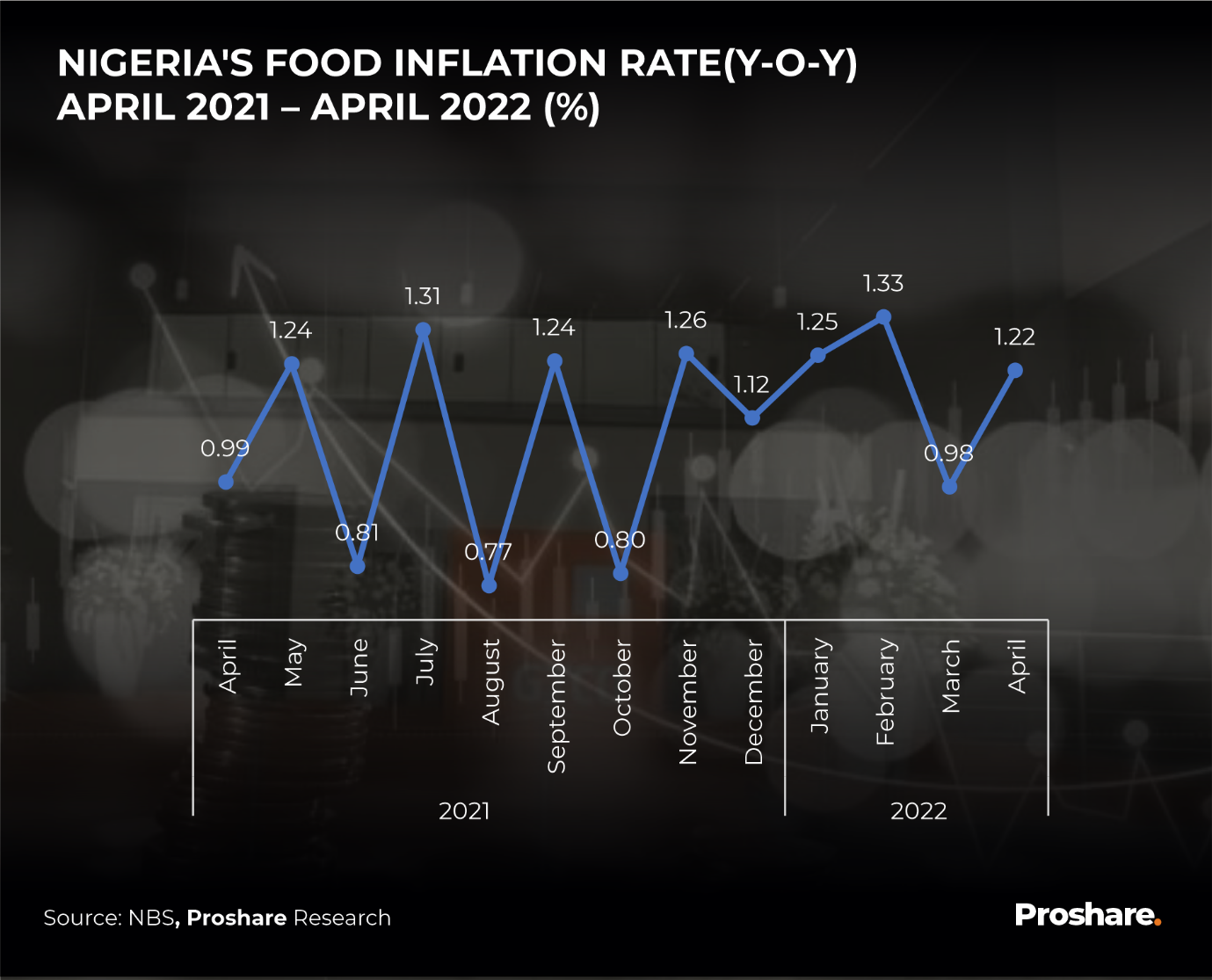
Source: NBS, Proshare Research
The food CPI data for the month of April also saw food prices rise by +1.87% in April compared to prices in February 2021. (See Chart 4 below)
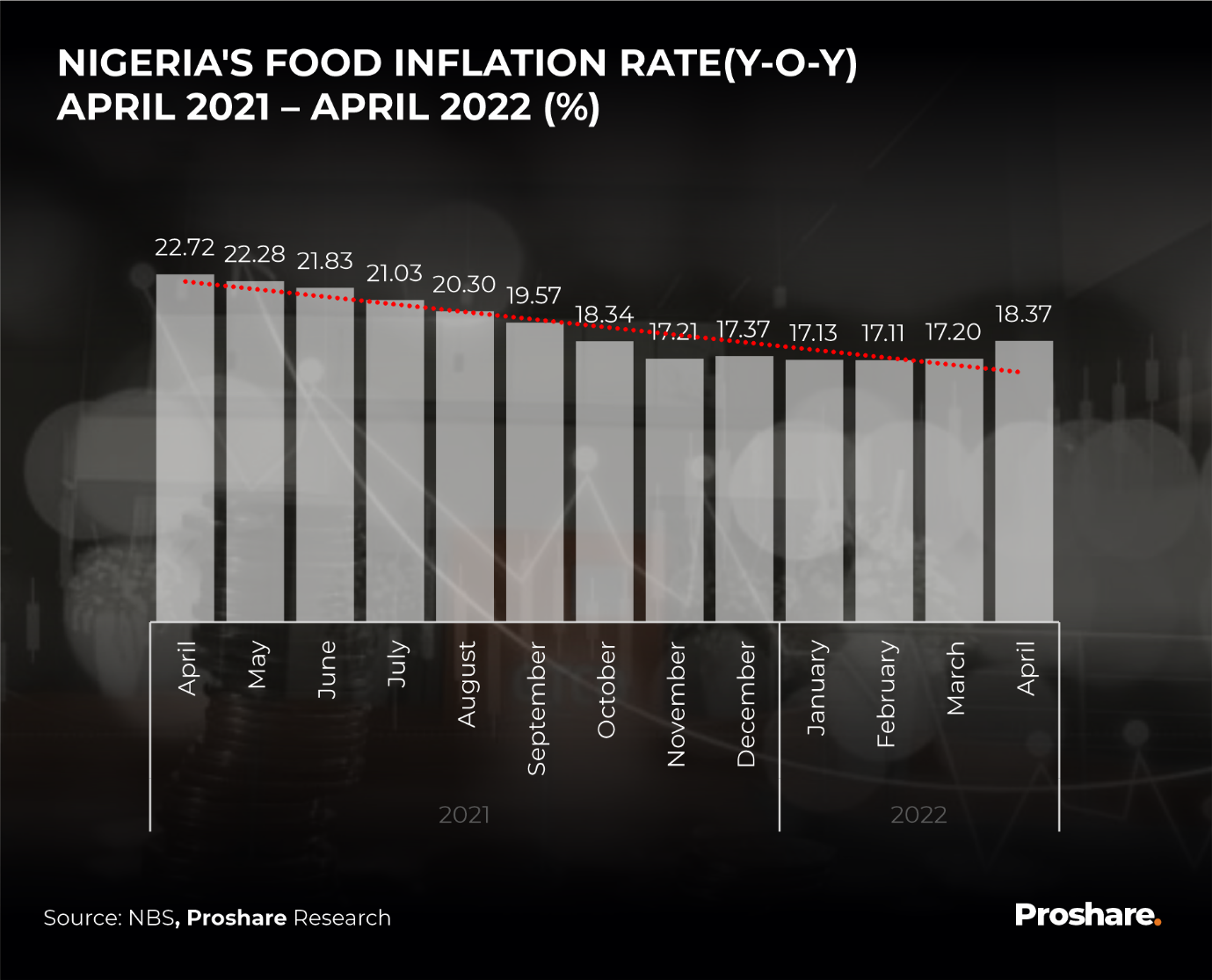
Core Inflation:
The prices of non-farm products rose by +14.18% Y-o-Y in April due to the knock-on effects of higher energy costs. The figure suggests that the price of items in the core sub-index was +14.18% higher in April than they were in the corresponding period of 2021. The recent figure indicates that core inflation largely steadied between November 2021 and March 2022, when it hit a five-year high. The last time the core index rose this fast was in April 2017. Analysts believe that this is an indication of a steeply rising domestic yield curve as long-term inflation expectation remains high (see Chart 5 below).
Chart 5: Nigeria's Core Inflation Rate April 2021 - April 2022 (%)
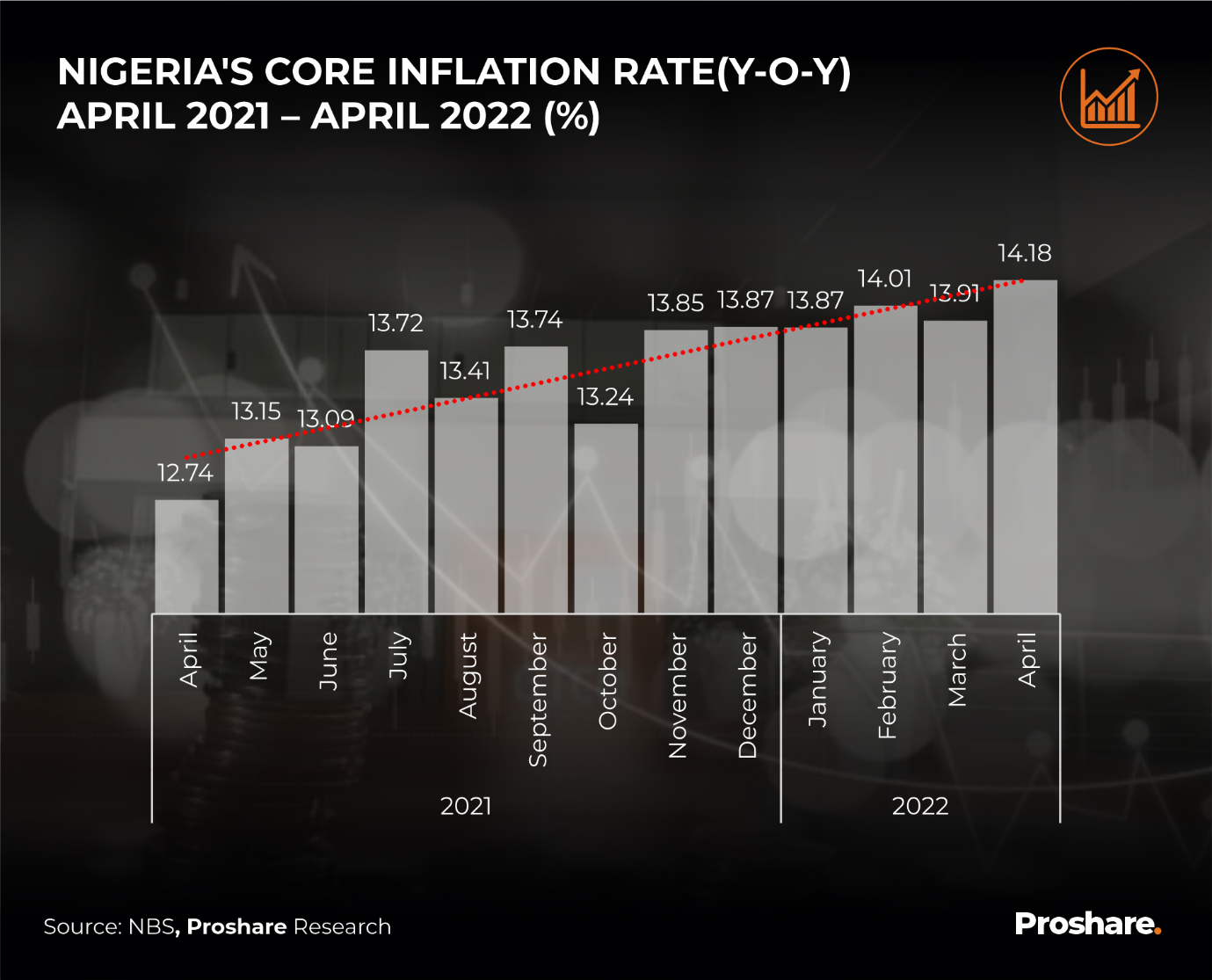
M-o-M, prices on the core sub-index rose by +1.22% or higher than the 0.98% rate at which prices of non-farm items rose in March 2022 (see Chart 6 below)
Chart 6: Nigeria's Headline Inflation Rate (M-o-M) April 2021 - April 2022)
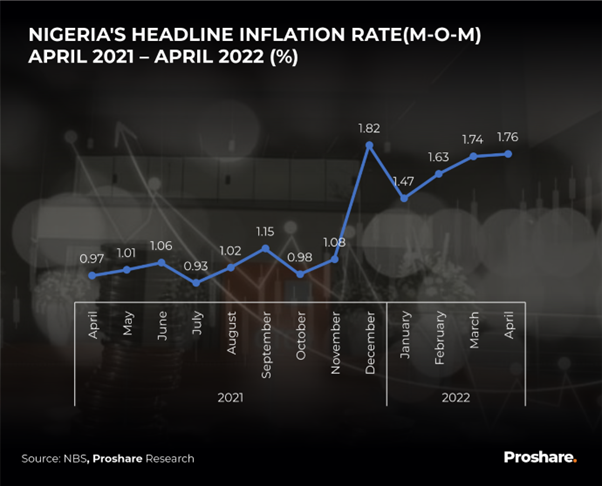
Inflation trends in Urban and Rural Locations
April showed that urban inflation rose by +17.35% Y-o-Y, suggesting that prices in urban centres have risen faster than the broader national economy (+16.82%). Back in March, urban CPI rose by +16.44% when the national headline inflation was +15.92%.
Reviewing specific items, the cost of food, beverage, and transportation rose fastest in Urban areas in April.
In rural areas, inflation came in at +15.31% which was lower than nationwide inflation suggesting major price increases were felt more in urban areas.
In April 2022, headline inflation was highest in Bauchi at +18.93%, Ebonyi at +18.88%, and Akwa-Ibom at +18.81%. Meanwhile, Kogi state again recorded a large increase in its food CPI, in the state’s customized basket of commodities, there was a +22.8% increase in April 2022 compared to April 2021. Likewise, Kwara, Ebonyi, and Taraba all recorded higher food inflation last month (see Chart 7 below).
Chart 7: Headline and Food Inflation for States (April 2022)
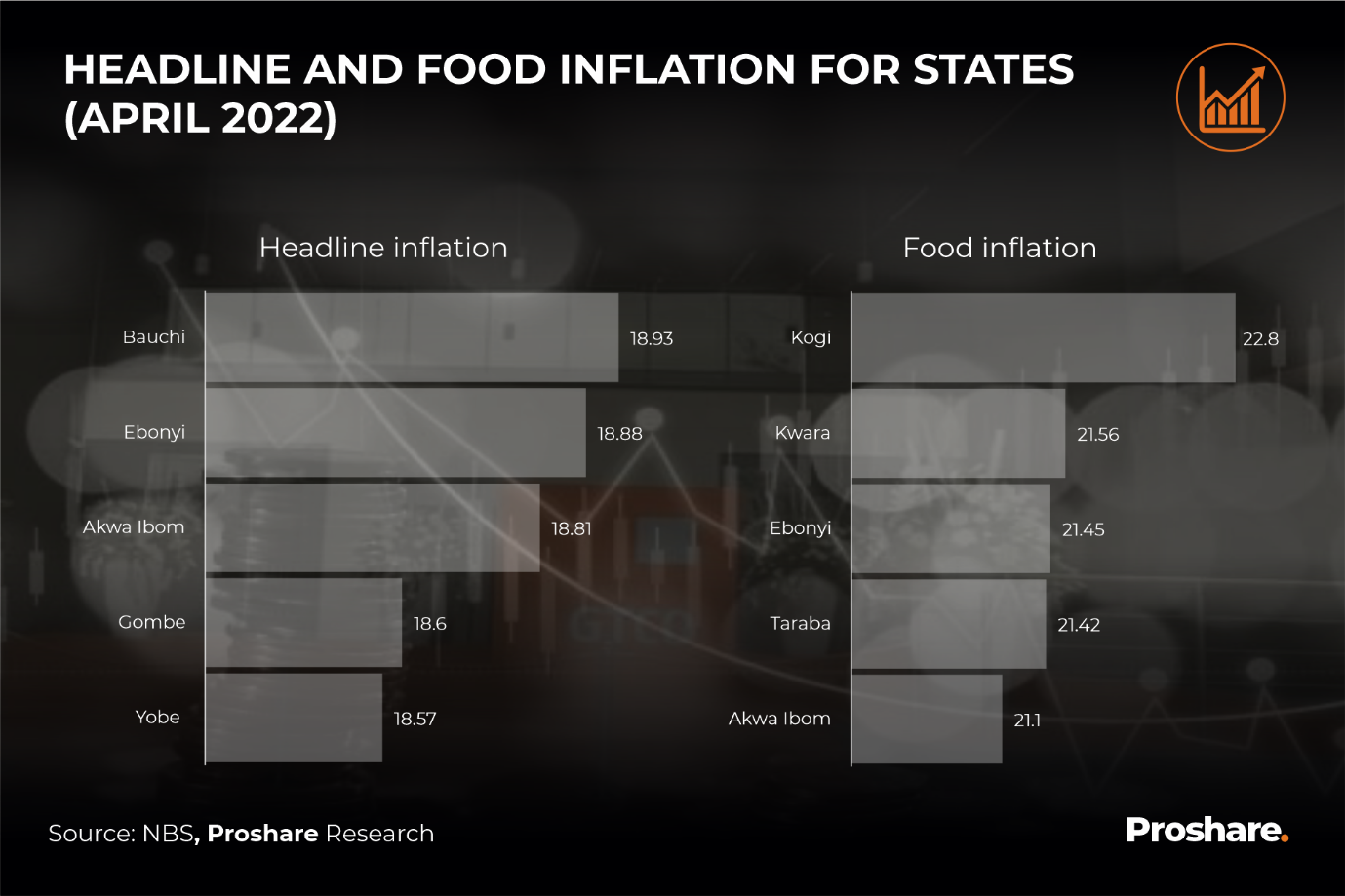
EndNote: Adjusting for Inflation
Last week the NBS released the Expenditure and Income GDP data for 2021, the report suggests that Household Consumption Expenditure in Q3 and Q4 2021 grew by +19.36% and +7.30%, Y-o-Y respectively. An important aspect of the growth of +3.4% recorded in FY2021 was attributed to consumer spending. The annual growth rate in household consumption expenditure stood at +25.65% compared to -1.69% recorded in 2020. Analysts have expressed concerns about the effect of persistent rise in prices especially food on consumption. Households would reallocate their income on essential items and spend less on non-essential items.
With rising domestic inflation and monetary policy normalization in full swing, the CBN MPC might consider a Monetary Policy Rate (MPR) rise at its meeting next week.
 Lagos, NG • GMT +1
Lagos, NG • GMT +1










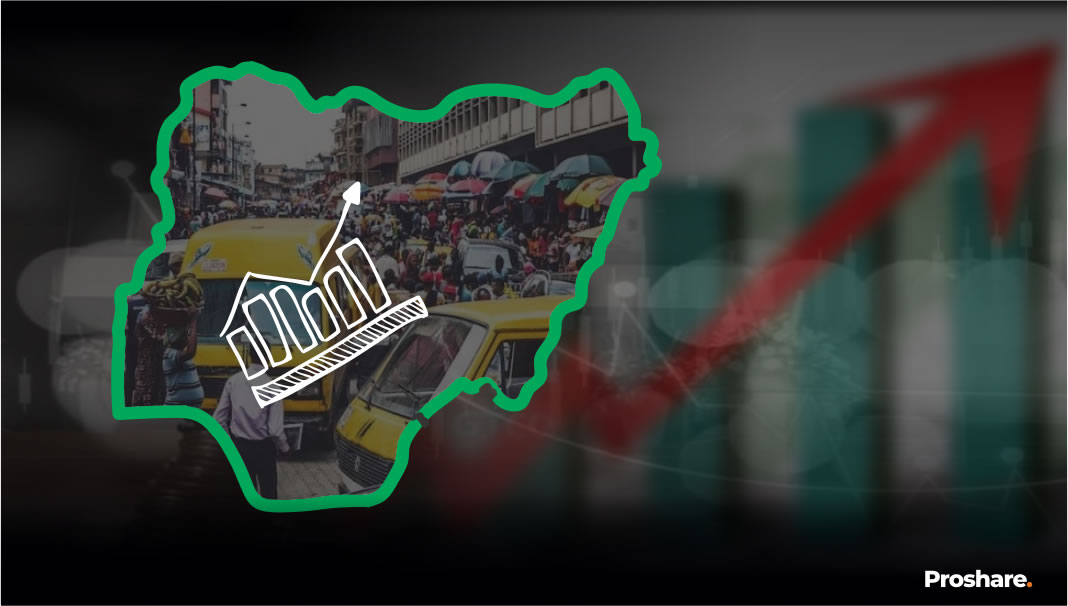
 597 views
597 views
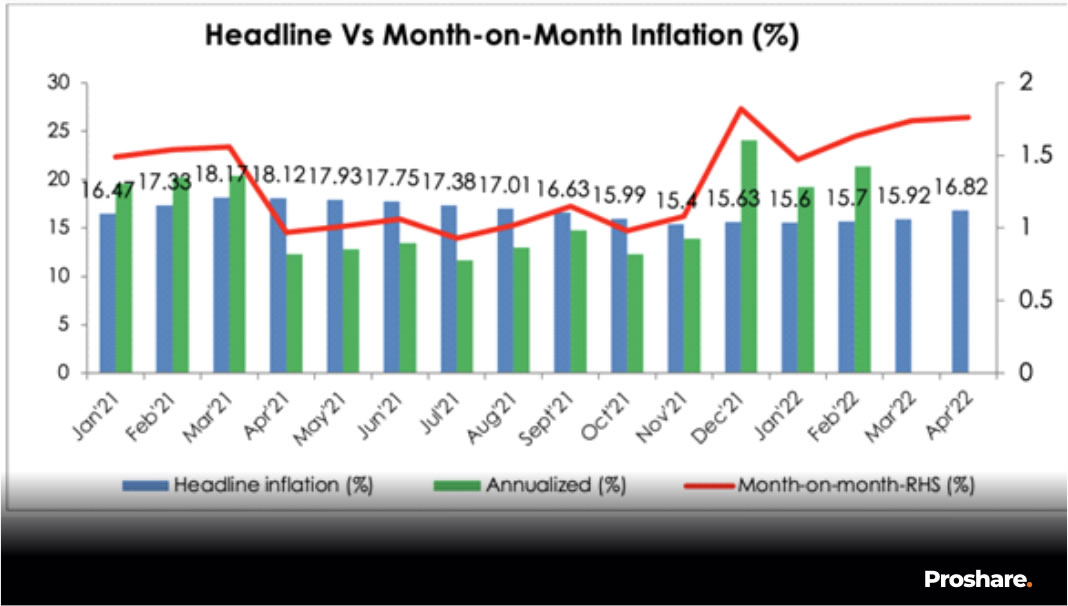
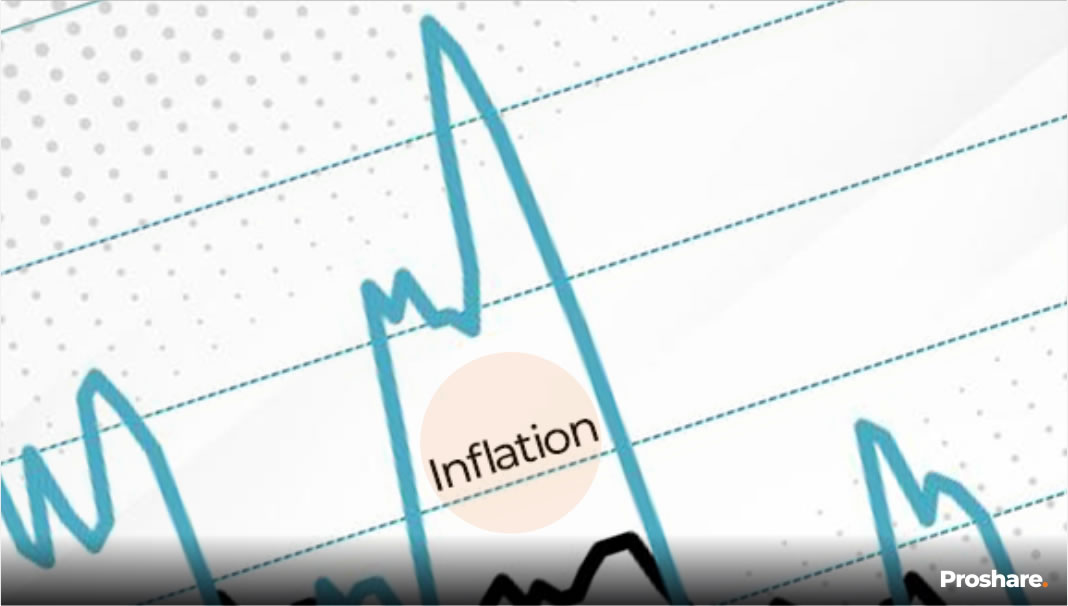

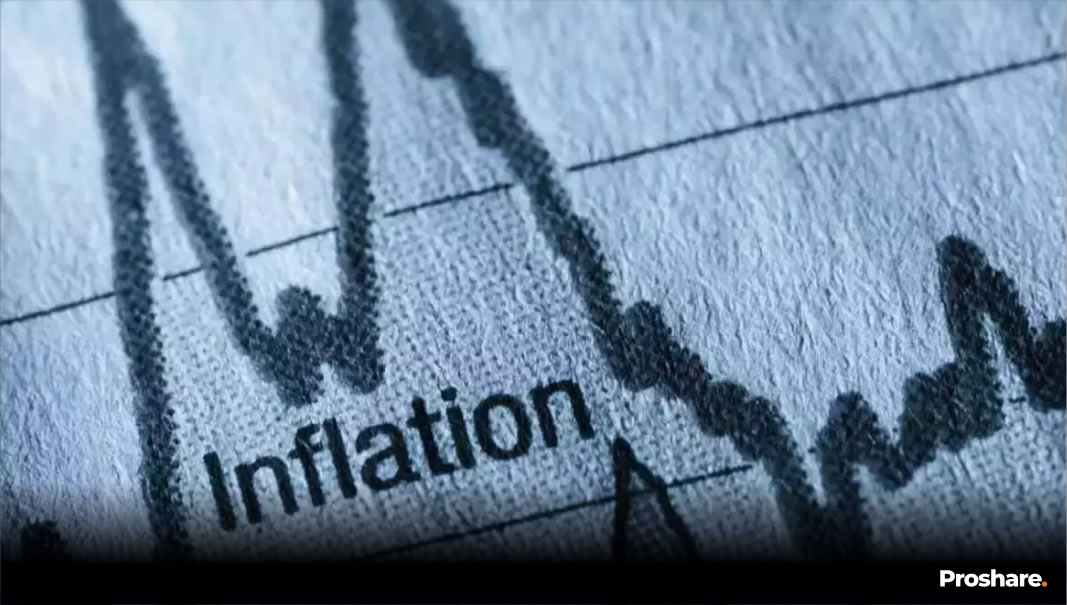
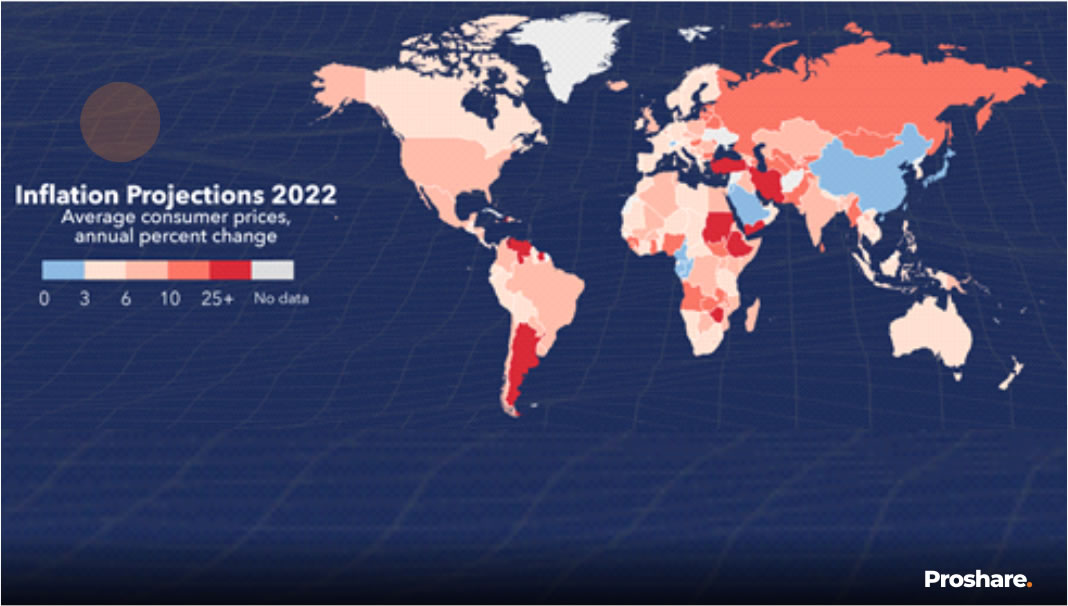
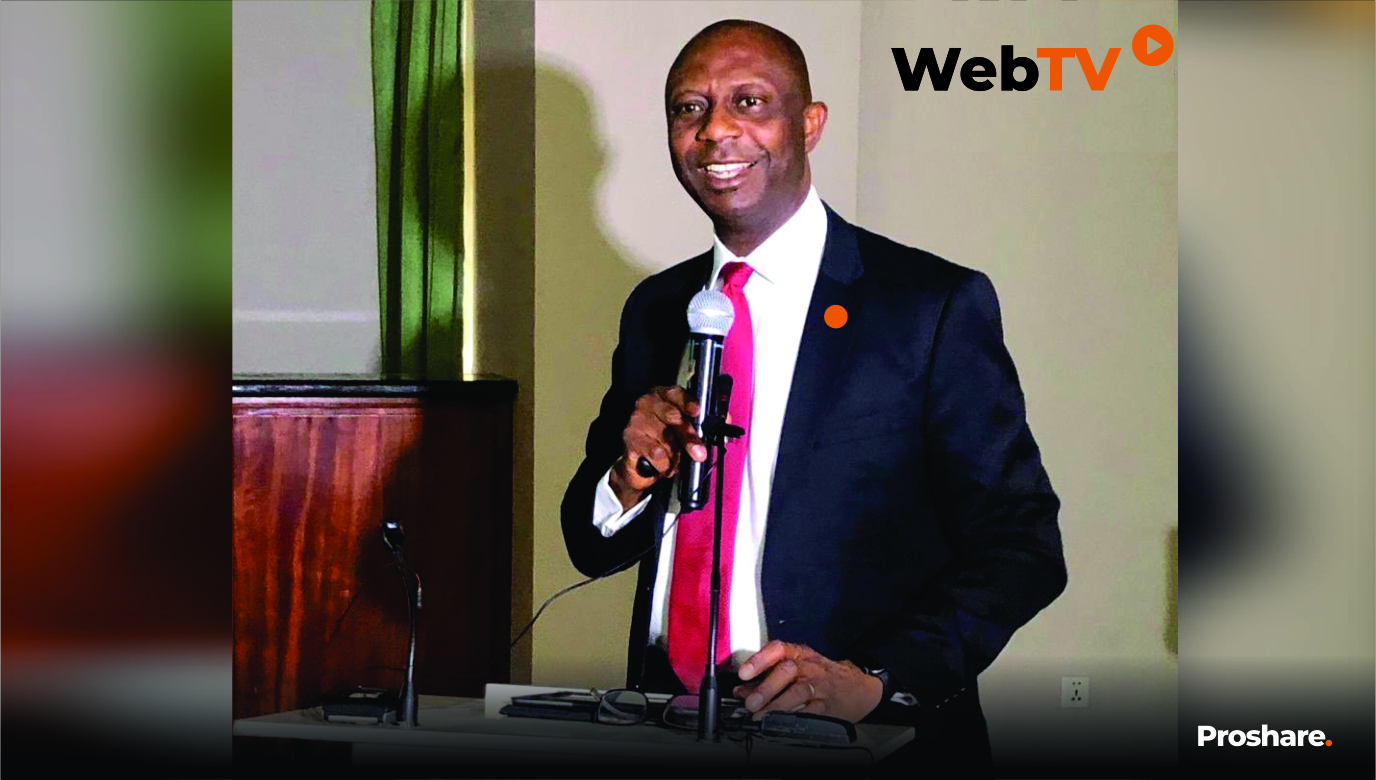
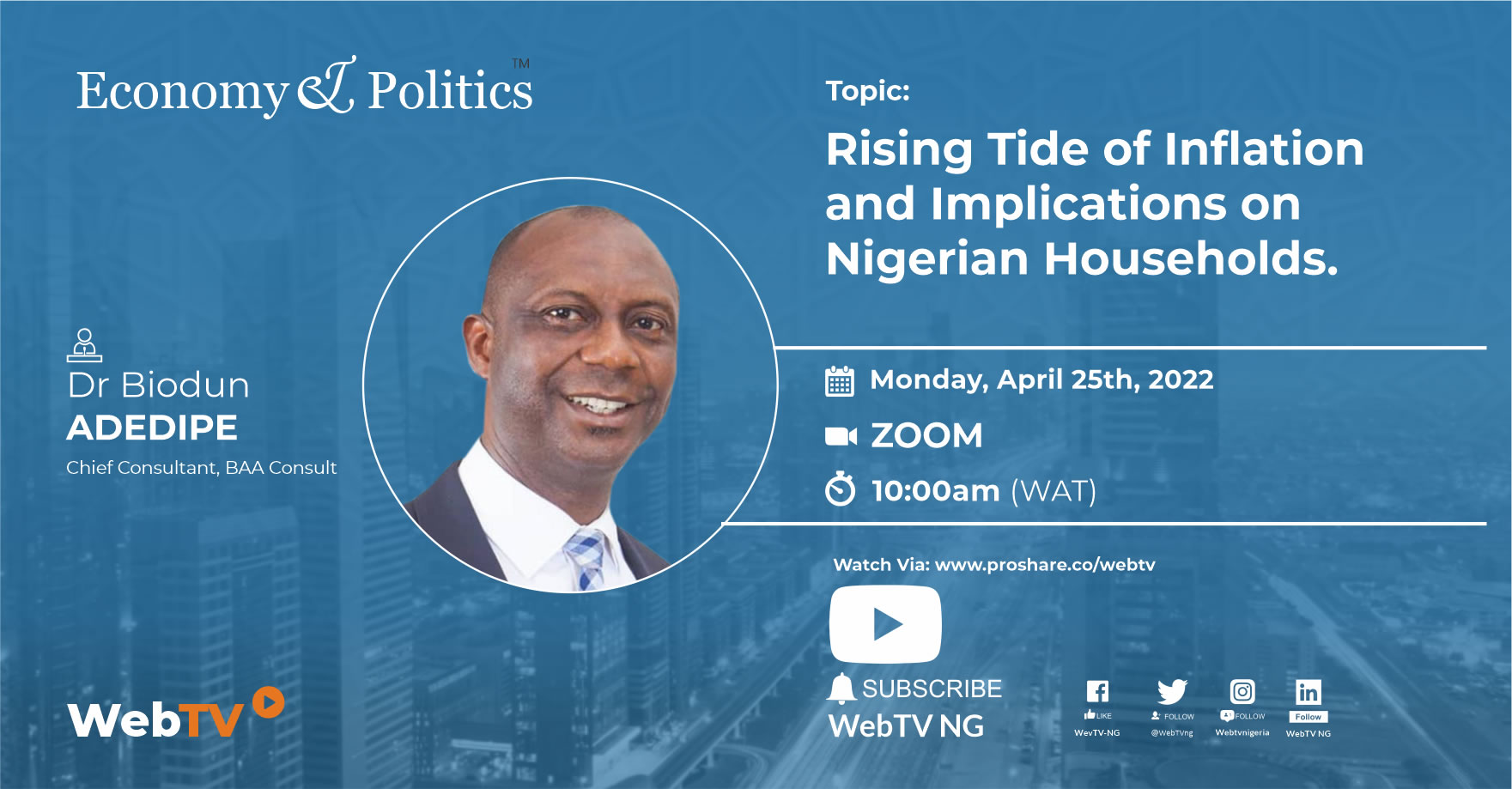
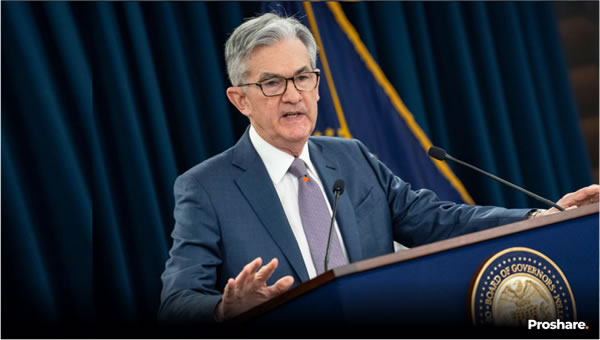





 Sponsored Ad
Sponsored Ad
 Advertise with Us
Advertise with Us









